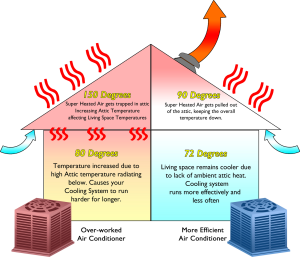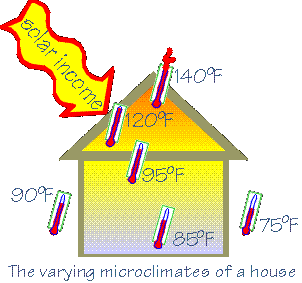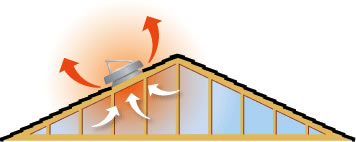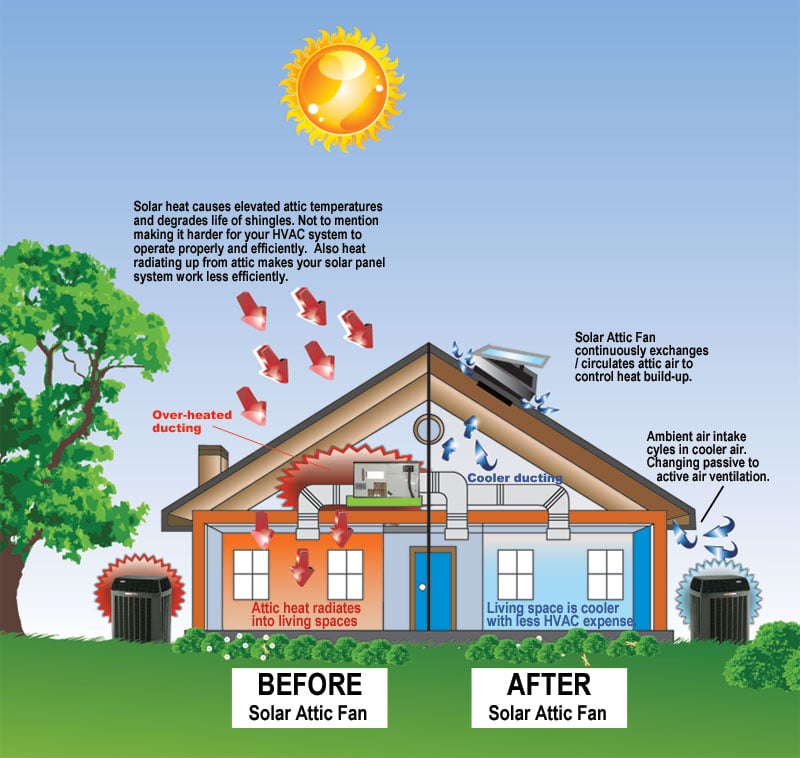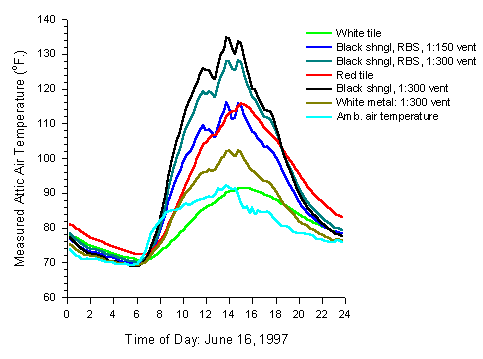The thermostat will usually start at 95 degrees fahrenheit which is the temperature that the attic fan usually starts at.
Best way to lower attic temperature in summer.
When reroofing use white or pale gray shingles instead of dark ones.
There are several ways to do this.
How can you combat the excessive heat in your attic.
A ridge and soffit ventilation system an extra 200 during reroofing will reduce attic temperature to around 100 degrees.
Keep your blinds closed.
The cooling load for a home air conditioner depends on the difference in temperature between the inside and outside air and reduction of attic temperatures from 155 degrees to 105 degrees f will result in a.
And it can cause your air conditioner to work harder than it needs to and send your energy bills soaring with the temperature.
An unventilated attic can reach 150 degrees in the heat of summer 50 degrees higher than it should be.
Here are ten different ways to reduce your attic heat temperature and save you money.
Attics can reach temperatures of 150 to 160 degrees f during a summer day although outside air temperatures are only 95 to 97 degrees f.
Also make sure your attic is ventilated.
Temperature control and moisture control are the major reasons for providing attic ventilation.
Use a thermostatically controlled roof mounted ventilator.
Summer attic air temperatures with old terra cotta colored asphalt shingles peaked at 140 to 145 at 18 above the blown in fiberglass insulation layer at the attic floor.
An overheated attic can bake asphalt shingles on the roof and cause them to deteriorate.
And the extra heat is not just a summer concern come winter hot attic air can melt snow on the roof during the day only to refreeze when temperatures drop overnight creating ice dams that lead.
In other words closing the blinds essentially prevents your home from becoming a miniature greenhouse which is.
It will help to keep the attic much cooler in the summertime.
One is the use of attic fans.
Hot summer weather poses the opposite problem for maintaining recommended attic temperatures.
Other solutions include adding an attic vent or improving attic insulation.
Summer attic air temperatures with reflective roof peak at or slightly above outdoor air ambient.

